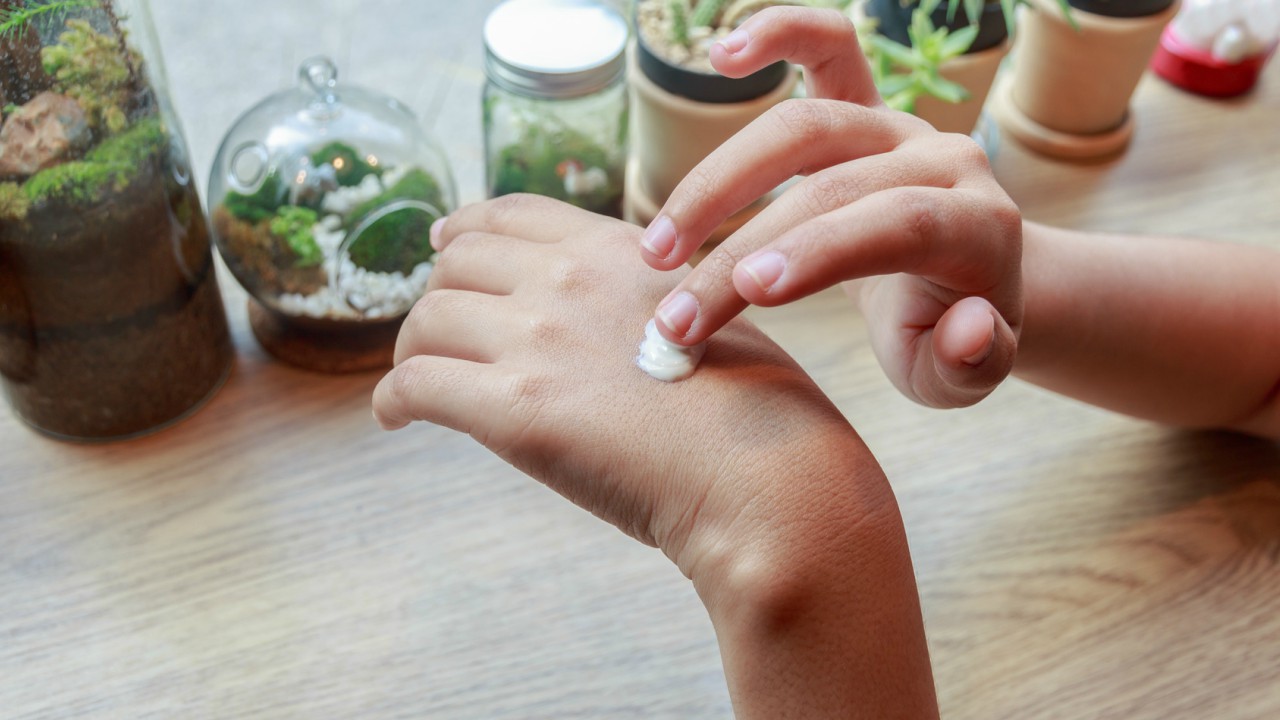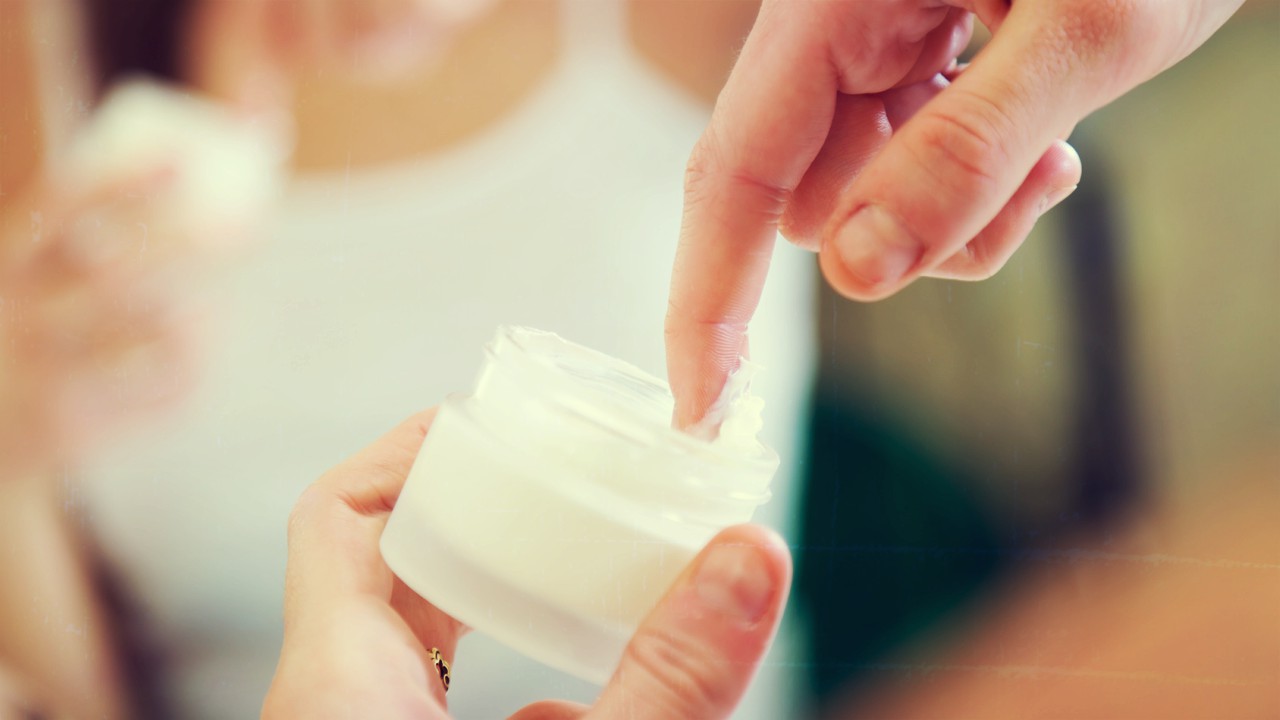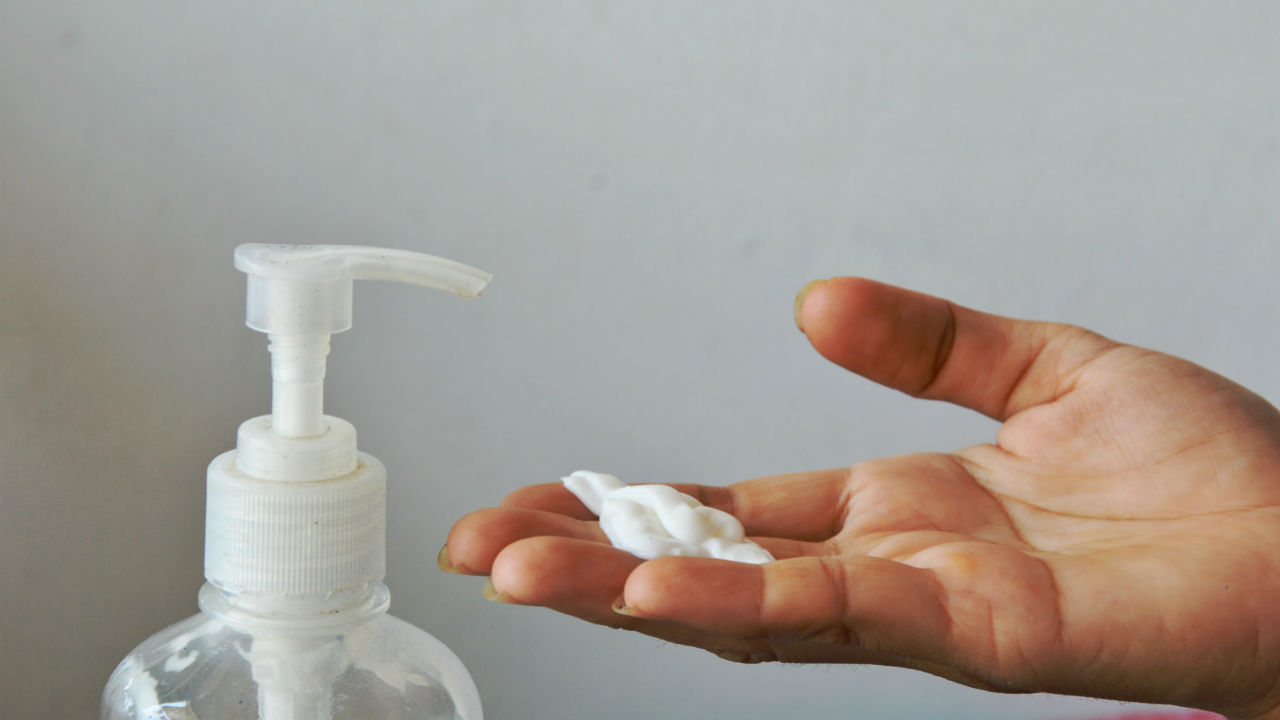 petzshadow/fotolia
petzshadow/fotolia
In recent decades, an increasing number and variety of chemicals are being used in products of all kinds. What's in the makeup you're wearing, or in the shampoo you used on your hair?
In the United States, the FDA does not have the power to test and approve chemicals in cosmetics and over-the-counter products the way they require drugs companies to show for drug approval.
Fortunately, groups such as the Campaign for Safe Cosmetics coalition, which is a project of the Breast Cancer Fund, and the Environmental Working Group provide information to help us make our own choices about the chemicals in products that we buy.
The European Union regulates and restricts cosmetic ingredients to prevent possible carcinogens and other health hazards from being used in personal care products.
The EU Cosmetics Directive of 2003, which was revised in 2013, bans 1,328 chemicals from cosmetics. Ingredients that may cause birth defects, cancer, genetic mutation or reproductive harm are not acceptable in the EU.
According to the Campaign for Safe Cosmetics in the United States, the FDA does not have such wide-reaching powers, and has limited or banned only 11 chemicals from cosmetic products.
1) Butylated hydroxyanisole (BHA) and butylated hydroxytoluene (BHT)
BHA and BHT are preservatives for many personal care products, and in foods, found in antiperspirants, deodorants, creams, fragrance, hair products, lip products, makeup and sunscreen.
EU has determined that BHT and BHA are linked to cancer, developmental toxicity, endocrine disruption, organ system toxicity, reproductive toxicity. Pregnant women and babies are considered most vulnerable.
2) Coal Tar
Burning coal creates the carcinogen coal tar which contain polycyclic aromatic hydrocarbons (PAHs). Coal tar is used in cosmetics, hair dye, lotions, scalp treatments, shampoo and other personal care products, as well as in food and textiles.
According to the Campaign for Safe Cosmetics, bladder, skin tumors, neurological problems, as well as digestive tract, kidney and lung cancers can result from being exposed to coal tar.
The FDA must specify on a label the concentration of coal tar, and allows levels of 0.5 to 5 percent.
3) Formaldehyde
Formaldehyde is often found in personal care products like shampoo and liquid baby soap, nail polish and glue, hair gel, hair-smoothing products, body wash, some cosmetics.
It may be specifically added to products, or it may be released from preservatives like quaternium-15. It is most hazardous, when ingested as a gas.
It been found to be a carcinogen which may be linked to cancer, skin irritation, tumors and leukemia.
According to Livestrong.com, the International Agency on Research on Cancer (IARC) declared formaldehyde a carcinogen in 2004. While it's not used as an antiseptic as much as previously it is still used in hair straighteners and keratin treatments.
4) Heavy Metals
Aluminum, arsenic, chromium, iron, lead, mercury and zinc are some heavy metals in personal care products, e.g. blush, eyeliner, eye shadow, lipstick, nail polish, sunscreen, and whitening toothpaste. Some are deliberately added, some are contaminants.
Some heave metals are linked to toxicity in the body, which may take the form of cancer, developmental toxicity, environmental problems like bioaccumulation, organ-system toxicity, and reproductive toxicity. Pregnant women, young children and teens are most vulnerable.
Heavy metal usage is banned in in cosmetics in Canada, Japan and the European Union. It is restricted in cosmetics in the United States.
5) Hydroquinone (tocopheryl acetate)
Hydroquinone is used in facial moisturizers, finger nail products, hair conditioner, skin cleansers, and skin lighteners especially by women with dark skin.
It has been linked to cancer, organ-system toxicity, and respiratory tract irritation. It has been banned in the EU, allowed up to 2 percent in the US.
6) Parabens
Parabens are preservatives that prevent microbe growth in food and personal care products. They're found in conditioners, facial cleansers, lotions, scrubs, shampoos and shower cleansers.
They may be potentially linked to cancer, developmental toxicity, endocrine disruption, and reproductive toxicity. Pregnant women and children should especially avoid contact with parabens. Avoid anything that ends in -paraben.
Some parabens are banned in the United States in cosmetics and products for children up to the age of three. In 2012, the European Union banned the use of parabens.
7) Petroleum jelly (Petrolatum)
Petrolatum is a possible carcinogen used as a moisturizing agent in cosmetics, lotions, and other personal care products.
Petrolatum is fine when it's thoroughly refined. But when it's not fully refined, it can contain PAHs. The EU requires complete refining of petrolatum, the United States does not.
8) Phthalates
Phthalates have been banned in cosmetics in the EU, but is available in many U.S. products, e.g., body wash, color cosmetics, fragrance, hair products and nail polish.
The European commission has determine that the phthalates DBP and DEHP may cause cancer, developmental toxicity, endocrine disruption, and reproductive toxicity, especially in pregnant and breastfeeding women.
The European Chemicals Agency classifies these two parabens as reproductive toxicants.
The National Toxicology Program and U.S. Environmental Protection Agency have stated that DEHP is "reasonably to be anticipated to be a human carcinogen based on animal studies."
9) Quaternium-15
Quaternium-15 is an allergen and skin toxin. Janitors and hairdressers may be most at risk due to their frequent exposure to products containing quaternium-15.
It's in cleansers, creams, hair products, lotions, shaving products, eye drops, and various household products.
It can cause skin irritation and sensitization, and eye irritation. It releases formaldehyde.
The European Union allows use up to 0.2 percent in cosmetics and personal care products. There are no restrictions in the United States for quaternium-15 use in cosmetics.
10) Triclosan
Triclosan is found in antibacterial soap and detergent, antiperspirants, color cosmetics, deodorants, shaving products, and dental products.
It's an antimicrobial agent used to stop odors, and kill bacteria and fungus. In 2005 the FDA stated that there was no proof that it protected from bacteria better than plain soap and water.
It may cause endocrine disruption that may affect thyroid, triclosan-resistant bacteria, and bioaccumulation.
Everyone should avoid it, especially pregnant and breastfeeding women.
Reviewed December 7, 2016
by Michele Blacksberg RN
International Laws.Safecosmetics.org. Retrieved Dec. 5, 2016.
http://www.safecosmetics.org/get-the-facts/regulations/international-laws
Chemicals of Concern. Safecosmetics.org. Retrieved Dec. 5, 2016.
http://www.safecosmetics.org/get-the-facts/chemicals-of-concern
Coal Tar. Goodguide.com. Retrieved Dec. 5, 2016.
http://www.goodguide.com/ingredients/160123-coal-tar-ingredient-information-reviews
EWG' Skin Deep Cosmetics Database. EWG.org. Retrieved Dec. 5, 2016.
http://www.ewg.org/skindeep
6 Skin Care Ingredients to Avoid! Livestrong.com. Retrieved Dec. 5, 2016.
http://www.livestrong.com/blog/skin-care-makeup-tips-keep-safe





Add a CommentComments
There are no comments yet. Be the first one and get the conversation started!